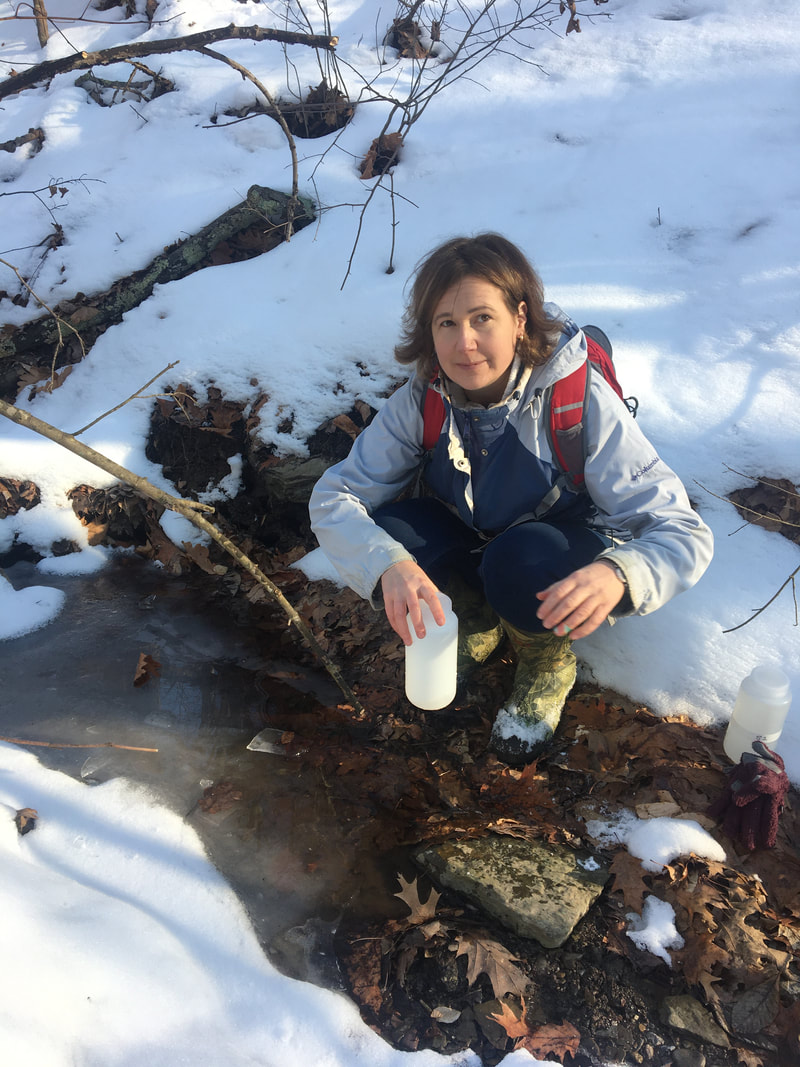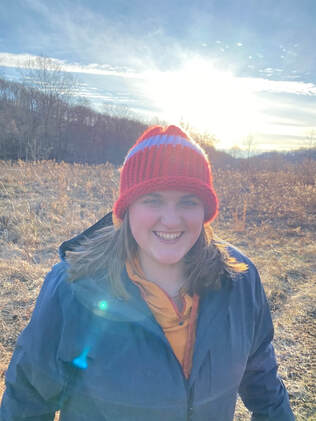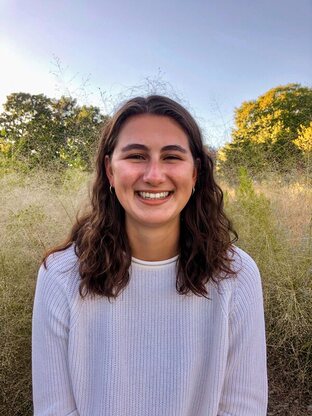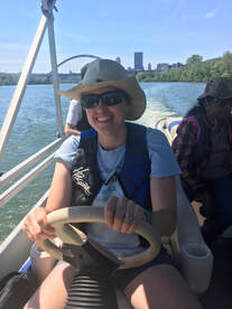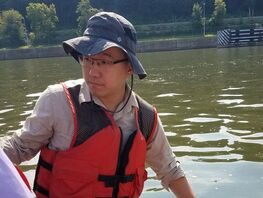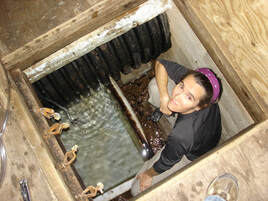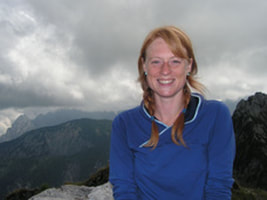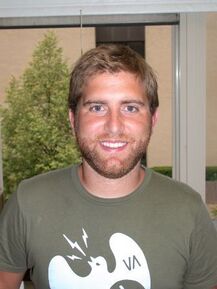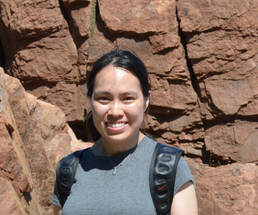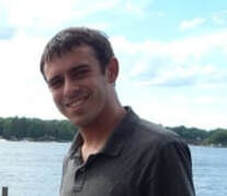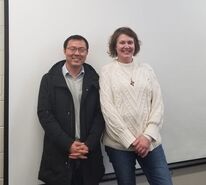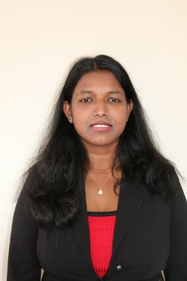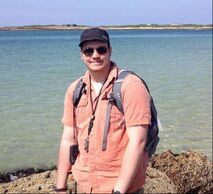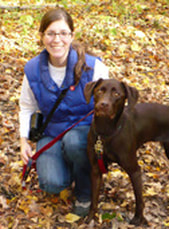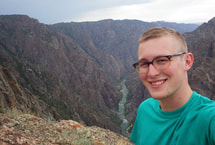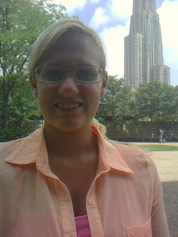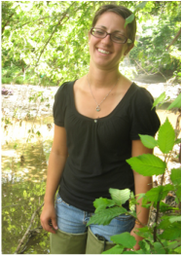Emily M. Elliott, PI, Professor
|
Emily earned her Ph.D. at Johns Hopkins University in the Department of Geography & Environmental Engineering (DoGEE) under the advisement of Grace S. Brush. From 2003-2006 she was a Postdoctoral Research Associate with the USGS, Division of Water Resources. She has been a Pitt faculty member since 2007 when she joined the Department of Geology & Environmental Science (formerly "Geology & Planetary Science"). She was promoted to the rank of "Professor" in 2019. She holds a secondary appointment in the Department of Civil and Environmental Engineering at the University of Pittsburgh.
She is broadly interested in ecosystem ecology, and her research approach is multi-faceted and transdisciplinary, pulling from the fields of biogeochemistry, isotope geochemistry, atmospheric chemistry, hydrology, aquatic and terrestrial ecology, and geography. Emily teaches courses in Ecosystem Ecology, Science Communication, and Ecosystems: Land-Water-Atmosphere Interactions. Emily is Director Emeritus (2017-2022) and co-founder of the Pittsburgh Collaboratory for Water Research, Education, and Outreach that bridges efforts in water research, governance, and action at the University of Pittsburgh. She is trained as a Science Ambassador through the National Academies of Sciences “Science & Engineering Ambassador Program” and the 2018 recipient of the American Geophysical Union’s Sulzman Award for Excellence in Education and Mentoring. She is passionate about the importance of interdisciplinary geosciences for addressing sustainability challenges, advancing diversity and inclusion in the geosciences, community-engaged research, and science communication. Mailing Address:
University of Pittsburgh 200 Space Research Coordination Center 4107 O'Hara Street Pittsburgh, Pennsylvania 15260-3332 p: 412/624-8882 f: 412/624-3914 email: [email protected] |
Current Lab Members
Elijah Hall, Ph.D. Candidate
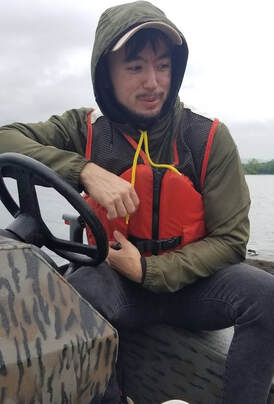 Elijah Hall
Elijah Hall
Elijah joined the Elliott lab in 2019 following completion of a B.S. from Rochester Institute of Technology in Environmental Science in 2018. Elijah has a strong interest in examining human impacts to water resources- and a particular interest in understanding drivers of harmful algal blooms on inland rivers and reservoirs. He completed an internship with the Seneca Nation, Department of Environmental Protection where he helped promote more effective pesticide regulation on Seneca lands. In 2019-20, Eli was awarded a Andrew Mellon Fellowship. In 2021, Eli was awarded a NSF GRFP, as well as a HHMI Gilliam Fellowship in 2021 to support his dissertation research.
Abby Yancy, Ph.D. Student
|
Abby joined the Elliott Lab in Aug 2022 as a PhD student. She earned her B.S. in Environmental Science from the University of Pittsburgh in 2021. Before joining the lab, Abby completed a post-baccalaureate position at the Carnegie Museum of Natural History funded by the NSF REPS program. Here she focused on the phenological change and strategies of the herbaceous layer in deciduous forests as well as launched a community science program at the museum’s nature center. Abby’s research focuses on ecosystem level biogeochemical and hydrological changes in upper Ohio River basin. |
Camille Butkus, Ph.D. Student |
Camille joined the Elliott lab in 2022 after receiving a B.S. in Environmental Engineering from Georgia Institute of Technology. Camille is interested in understanding biogeochemical cycles, particularly those relevant to soil and agricultural settings. As part of her research, she will be working with the Gilbertson and Little labs to test the effectiveness of a liposome encapsulated nitrogen fertilizer. |
Lab alum
|
